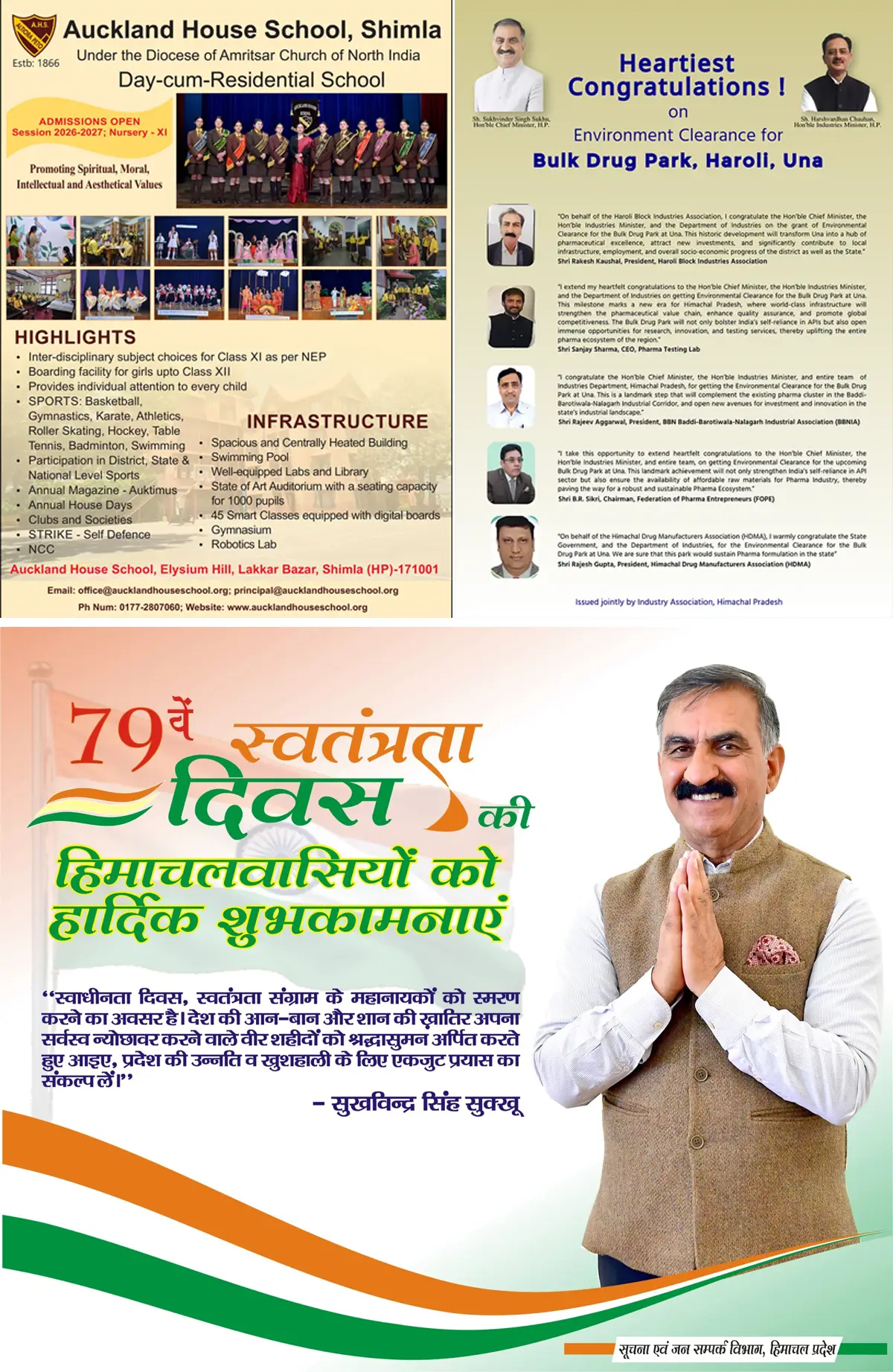Faith, Attitude, Knowledge and Hard-work are the keys for success in life: Dr. Rajendra Sharma
2 min read
Webinar on “Significance of Ayurveda and Yogic Pranayama on our body systems” organised at Shoolini Univ
Solan, June 17 – As part of the webinar series “Yoga for health and happiness”, the school of Yoga at Shoolini University organised a webinar in which the keynote speaker was Dr. Rajendra Sharma, District Ayurvedic officer- Solan, Department of AYUSH, Himachal Pradesh.
The session started with Mantra chanting by Research Associate Ms. Divya Matlani. The welcome note was presented by the Chancellor of Shoolini University Prof. P.K Khosla, who also addressed the audience and shared his vision.
Dr. Rajendra Sharma delivered his lecture on “Significance of Ayurveda and Yogic Pranayama on our body systems”. He explained the concepts of Tri-doshas and Saptadhatu. Also emphasised on the four pillars of Ayurveda which leads to healthy and happy life i,e Aahara, Vihara, Achara, Vichara. Dr. Rajendra Sharma concluded his talk with the statement – “A healthy individual having right faith, attitude, knowledge and hard-work can achieve success in life”.
In another lecture Dr. Vivek Maheshwari, Associate Professor Dept of Ashtang Yoga, Lakulish Yoga University Ahmedabad, Gujaraexplained that Yoga Nidra is best for mind, and also discussed that kids are also facing stress, anxiety and tension now a days and they can make life better with the help of Yoga.
Afterwards, Dr. Satya Prakash Pathak, Assistant Professor, Department of Yogic Studies, Himachal Pradesh University.delivered his lecture on the topic “Significance of Abhyasa and Vairagya for Happiness”. He also described the Abhyasa and vairagya sutra of Sage Patanjali.
Dr. Arpit Kumar Dubey, Assistant Professor(Sanskrit), Morarji Desai National Institute of Yoga, Ministry of AYUSH, delivered his lecture on “Yogavashishtha: A Practical Pathway for a blissful Life”. Dr. Arpit also discussed the teachings of sage vashistha and emphasised on the psychological aspects i.e, world is the creation of mind, projection of mind and Prana gives stimulation to mind. In conclusion he explained six chapters of Yogavashishtha with their management principles of mind – Regular practice and detachment, breathing practices and knowledge.
The webinar concluded with the vote of thanks and closing remark by the HOS, School of Yoga and Naturopathy Associate Professor Dr. Subodh Saurabh Singh. The webinar was coordinated by Assistant Professor, Dr. Mala Tripathi.





